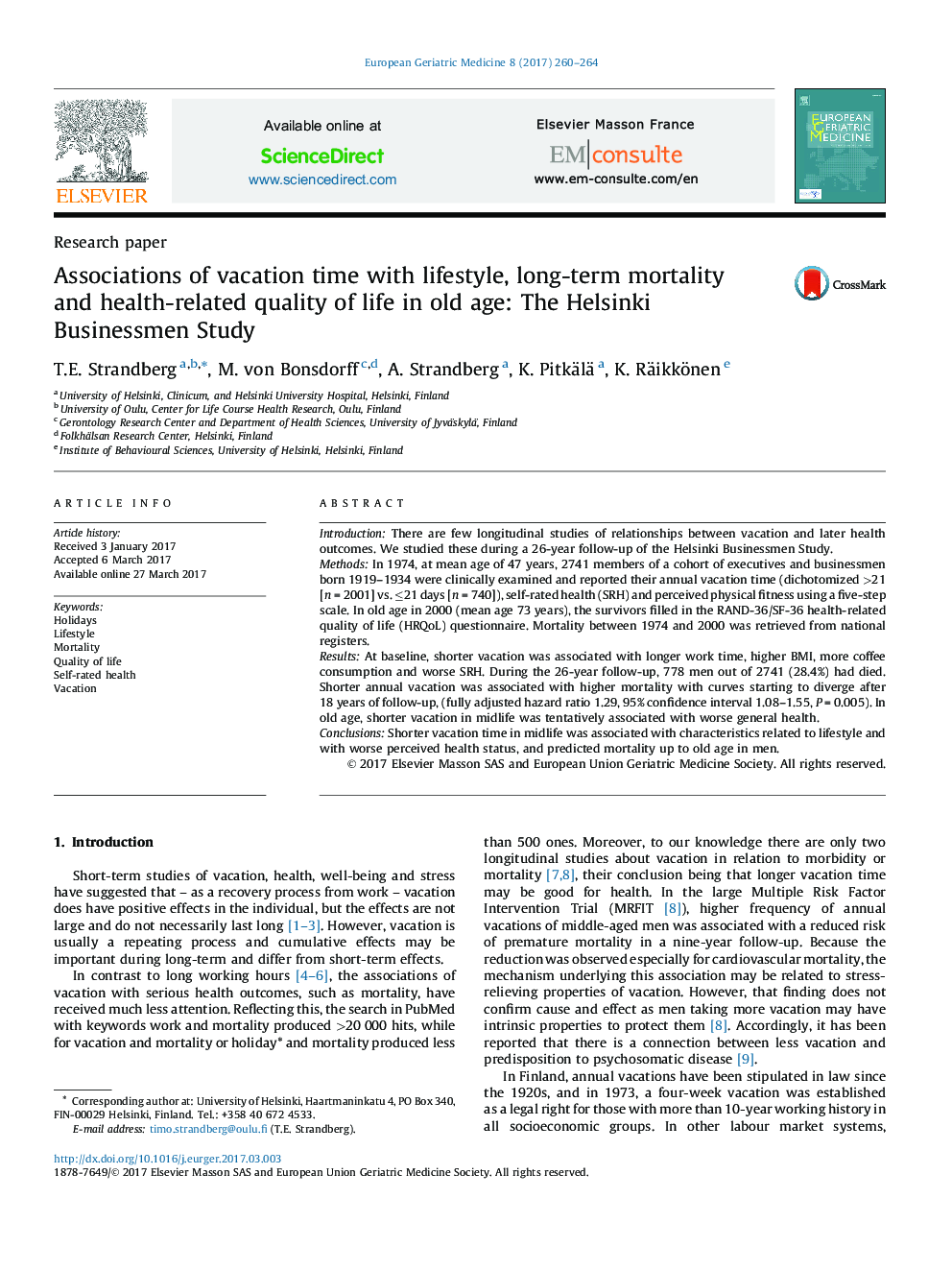| Article ID | Journal | Published Year | Pages | File Type |
|---|---|---|---|---|
| 5662524 | European Geriatric Medicine | 2017 | 5 Pages |
IntroductionThere are few longitudinal studies of relationships between vacation and later health outcomes. We studied these during a 26-year follow-up of the Helsinki Businessmen Study.MethodsIn 1974, at mean age of 47 years, 2741 members of a cohort of executives and businessmen born 1919-1934 were clinically examined and reported their annual vacation time (dichotomized >21 [n = 2001] vs. â¤21 days [n = 740]), self-rated health (SRH) and perceived physical fitness using a five-step scale. In old age in 2000 (mean age 73 years), the survivors filled in the RAND-36/SF-36 health-related quality of life (HRQoL) questionnaire. Mortality between 1974 and 2000 was retrieved from national registers.ResultsAt baseline, shorter vacation was associated with longer work time, higher BMI, more coffee consumption and worse SRH. During the 26-year follow-up, 778 men out of 2741 (28.4%) had died. Shorter annual vacation was associated with higher mortality with curves starting to diverge after 18 years of follow-up, (fully adjusted hazard ratio 1.29, 95% confidence interval 1.08-1.55, P = 0.005). In old age, shorter vacation in midlife was tentatively associated with worse general health.ConclusionsShorter vacation time in midlife was associated with characteristics related to lifestyle and with worse perceived health status, and predicted mortality up to old age in men.
